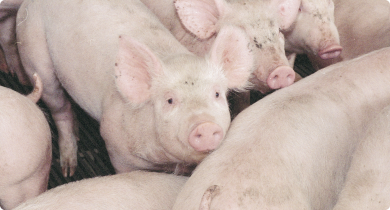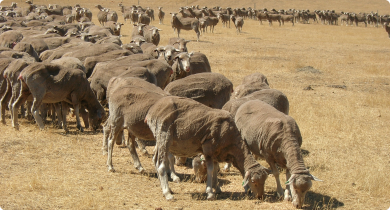Feeding & nutrition
What animals eat has a major impact on performance, profitability and quality of the end product. For intensive livestock (pigs, poultry and sheep and cattle in feedlots), cereals, legumes and protein meals make up the majority of the diet and are formulated to meet diet specifications. For extensive animals, quality of pastures and year-round supply become major issues.
The Department of Primary Industries and Regional Development supports the livestock industry by conducting a range of research activities, often in collaboration with industry and scientific groups. This research concentrates on determining nutrient requirements, evaluating feed ingredients and studying product quality (for example, eating quality of meat). The identification of alternative feed ingredients is an important activity, since the demand for more traditional feedstuffs will increase.
See Also
Articles
Filter by search
Filter by topic
- (-) Remove Stockfeed filter Stockfeed
- Biosecurity (4) Apply Biosecurity filter
- Livestock biosecurity (4) Apply Livestock biosecurity filter
- (-) Remove Biosecurity & quarantine filter Biosecurity & quarantine
- Pests, weeds & diseases (1) Apply Pests, weeds & diseases filter
- Pigs (1) Apply Pigs filter
- Livestock species (1) Apply Livestock species filter
- Diseases (1) Apply Diseases filter
- Livestock disease surveillance (1) Apply Livestock disease surveillance filter
- Livestock health & diseases (1) Apply Livestock health & diseases filter




